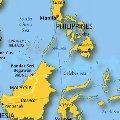Since Philippine courts struck down a peace deal with the Moro Islamic Liberation Front in 2008, sporadic attacks by the militants have forced more than 400,000 from their homes in Mindanao, in the country's south. Thousands of them joined about 100,000 compatriots who have fled to Malaysia over the past four decades as the MILF fought to create an Islamic homeland in Mindanao.
With President-elect Benigno Aquino to take office in Manila on June 30th, there are hopes for a new effort to reach a peace deal with the MILF.
Irene Fernandez is the executive director of Tenaganita, a Malaysian organization that works to protect the rights of women and refugees.
She says any effort to find a lasting peace must also resolve the fate of Filipino refugees and illegal immigrants in Malaysia.
"Many of them, they have become stateless during the last 35 years that they have been here," Fernandez said. "And it will be a good way of getting as many of the Filipinos to return to Mindanao from where they originally come from." Scores of refugee camps dot the coastline of Malaysia's Sabah state, on the tip of Borneo island. The United Nations High Commission for Refugees established most of the camps, which were originally designed to hold just a few hundred people.
The numbers have swelled as successive rounds of peace talks and ceasefires failed. The camps are poor and squalid. But many of the Filipinos have been in the camps so long that Fernandez worries they no longer identify with their own country.
"I have my concerns because we are looking at the second and third generation and sometimes even the fourth generation after so many years, who do not have any form of identity or knowledge of the Philippines and they look at themselves as more Sabahan or Malaysian rather than Filipino," she adds. She says peace talks must help the refugees, and give those who want it a chance to remain legally and work in Malaysia.
Only then, she says, could peace talks be said to have reached a fair and just conclusion.
An international monitoring team that includes Norway, Brunei, Japan and Libya will oversee the peace process in Mindanao, and monitor any ceasefire accord struck between Mr. Aquino's government and the MILF.

